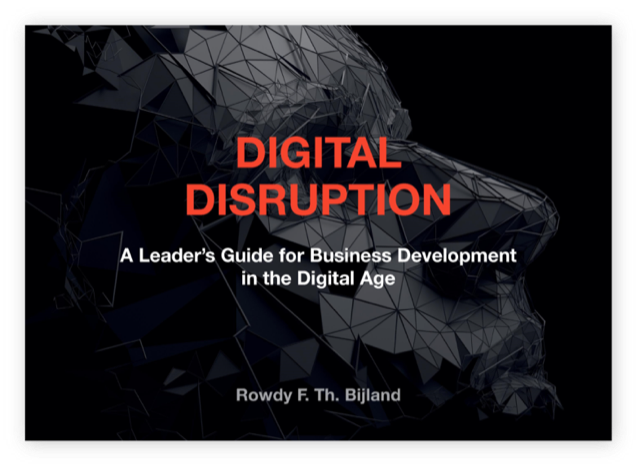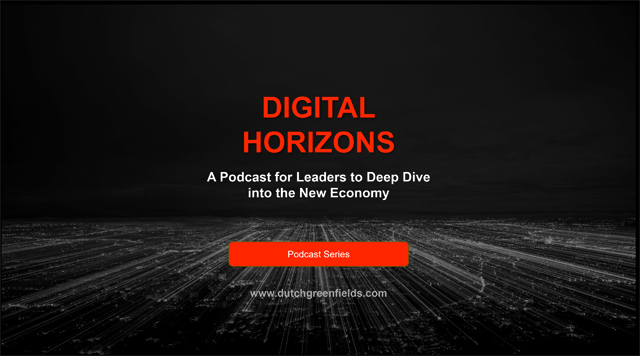Digital transformation is no longer an episodic initiative. It has become a permanent operating condition. Technology cycles accelerate, industry boundaries blur, and customer expectations reset continuously. In this environment, the central leadership challenge has shifted: success is no longer determined by the ability to execute a single transformation program, but by the ability to design an organization capable of continuous digital business development, innovation, and renewal.
Many organizations continue to rely on legacy transformation models, multi-year roadmaps, centralized programs, and one-off change initiatives. These models are increasingly misaligned with the speed, uncertainty, and nonlinearity of digital disruption. Leading organizations are adopting a different logic: change is no longer orchestrated as an exception but institutionalized as a core capability.
This article outlines the defining characteristics of the future organization and the leadership choices required to build it.
From Episodic Transformation to Continuous Renewal
Traditional transformation models were designed for relatively stable environments. Strategy was defined periodically, innovation was compartmentalized, and execution followed linear plans. Digital disruption has rendered these assumptions obsolete.
Today:
- Strategic relevance erodes more quickly
- Innovation cycles move faster than governance cycles
- Platforms, data, and AI continuously reshape value creation
- Competitive advantage is increasingly temporary
As a result, organizations must shift from project-based transformation to capability-based renewal. The objective is no longer to “complete” transformation, but to ensure the organization can adapt repeatedly without losing coherence, control, or trust.
Six Characteristics of the Future Organization
Organizations that consistently outperform in volatile digital environments share a common organizational logic. Six characteristics distinguish the future organization.
1. Strategy as a Dynamic System
In the future organization, strategy functions as a dynamic system, not a static plan.
This system:
- Provides clear long-term direction
- Enables rapid reprioritization as conditions change
- Integrates execution feedback directly into strategic decision-making
Rather than separating strategy formulation from execution, leading organizations create tight feedback loops. Strategy sets intent: execution generates learning; learning continuously refines strategy. This enables responsiveness without strategic drift.
2. Innovation Embedded in the Core
Innovation can no longer be isolated in labs, ventures, or dedicated teams. While these mechanisms remain useful, they are insufficient on their own.
Future organizations:
- Embed innovation capability within core business units
- Manage innovation as a portfolio across incremental, adjacent, and disruptive initiatives
- Apply the same rigor to innovation as to core operations, including clear ownership, funding logic, and performance metrics
Innovation becomes a repeatable, governed capability, not an episodic event.
3. Operating Models Designed for Adaptability
Traditional operating models are optimized for efficiency and predictability. The future organization prioritizes adaptability and speed.
Key shifts include:
- Organizing around end-to-end value streams rather than functional silos
- Empowering multidisciplinary teams with clear accountability
- Distributing decision-making authority within defined strategic guardrails
Adaptability does not imply loss of control. High-performing organizations combine freedom in execution with discipline in direction.
4. Technology as a Strategic Enabler
In digitally mature organizations, technology no longer constrains change it accelerates it.
This requires:
- Modular, platform-based architectures
- Strong data foundations and governance
- Embedded use of analytics, AI, and automation in core processes
Crucially, technology decisions are driven by business agility and value creation, not technical optimization alone. Technology strategy follows business strategy.
5. Leadership Distributed Across the Organization
Continuous transformation cannot be driven by a small group at the top. The future organization distributes leadership responsibility across levels and functions.
This entails:
- Clear accountability for digital value creation beyond IT through involvement of business functions
- Explicit decision rights, particularly where human judgment and automation intersect
- Leadership development focused on learning, systems thinking, and adaptability
Leadership shifts from directing execution to building organizational capability.
6. Governance That Enables Speed and Trust
As organizations become more adaptive, governance must evolve. Traditional governance models often slow decision-making and reinforce risk aversion.
Future-ready governance:
- Focuses on principles, guardrails, and outcomes rather than approvals
- Integrates oversight across digital, data, AI, risk, and compliance
- Enables faster decisions while preserving accountability and trust
Effective governance does not constrain innovation; it makes responsible scale possible.
Culture as the Invisible Infrastructure
Structure and process alone are insufficient. The future organization is underpinned by a culture that enables continuous change.
Such cultures consistently emphasize:
- Learning over certainty
- Experimentation within clear boundaries
- Transparency and feedback
- Collaboration across organizational boundaries
Culture becomes the invisible infrastructure that determines whether digital capabilities translate into sustained business impact.
The Risks of Standing Still
Organizations that fail to evolve their organizational model face increasing structural risks:
- Transformation fatigue from repeated, disconnected initiatives
- Inability to scale innovation beyond pilots
- Growing dependency on external platforms and vendors
- Gradual erosion of strategic relevance
Most critically, they lose the ability to respond effectively when disruption accelerates because adaptation remains episodic rather than systemic.
Designing for Permanent Change
The future organization is not defined by a single blueprint, operating model, or technology stack. It is defined by its capacity for continuous renewal.
This requires deliberate choices:
- Strategy as a dynamic system
- Innovation as a core organizational capability
- Operating models designed for adaptability
- Technology that accelerates change
- Distributed leadership with clear accountability
- Governance that enables speed, trust, and scale
Digital business development, innovation, and transformation are no longer separate agendas. They converge into a single imperative:
Design the organization not for stability, but for continuous relevance.
Organizations that succeed will not be those that transform most effectively once but those that are structurally prepared to keep transforming, without losing direction or trust.
About Rowdy Bijland
Rowdy is a strategic and creative thinker. He acts as a digital business partner with the mission to support leaders, their teams and organizations, to drive digital business strategy, innovation and transformation execution, with the aim to maximize potential and to contribute to the creation of sustainable value and meaningful impact. He released his first publication “Digital Disruption: A leader’s Guide for Business Development in the Digital Age” available both as paperback and eBook in the shop. In addition, he released a digital masterclass “Leading Digital Disruption” on Udemy. He is facilitator, moderator and keynote speaker for companies and organizations. Furthermore, Rowdy offers 1:1 digital business coaching for leaders worldwide.
To connect with Rowdy, please follow him on Linkedin.







